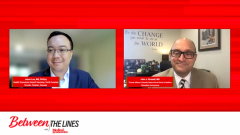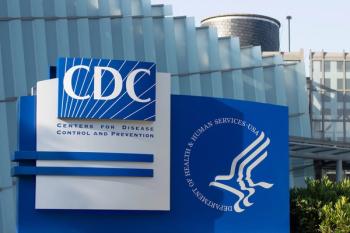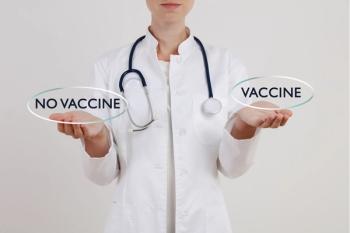
Future of Influenza Vaccination and Takeaway Points
Jason Lee, M.S., Ph.D.(c), and John J. Russell, M.D., discuss the future of influenza vaccination and provide key takeaways from the study.
Episodes in this series

Jason Lee, M.S., Ph.D.(c): The study that we looked at examined the impact of using a high-dose influenza vaccine on vaccine effectiveness against a range of outcomes. It’s one of the approaches that has been taken to improve vaccine effectiveness and immune responses in seniors. There are certainly new vaccine technologies in development. But Dr. Russell, looking into your crystal ball, what future developments would you like to see in our influenza vaccine development? What does the future look like for influenza?
John J. Russell, M.D.: I’m not completely sure where it will go, but one of the things with flu technology is that it’s relatively slow. They usually decide which strains are going to be in the flu vaccine sometime in the late winter. And with a lot of the egg-based vaccines, it still takes a long time to grow. We aren’t necessarily nimble enough to be able to say, “There’s a brand new strain.” And some years, they guess wrong. It would be great if we could figure out a way to truncate that so we could be more likely to guess right. I’d like to see that.
It would be great if there were a universal vaccine, so that if it’s a miss, it isn’t so left to the vagaries of which H3N2 or H1N1 strain is going around, and something that might apply if a brand new strain fell out of the sky. Those would be some of the things I’d be excited about, along with a vaccine that wouldn’t necessarily require administration every year. If you look at things like Healthy People 2000 or Healthy People 2020 [U.S. 10-year benchmarks and objectives], when you look at things like the pneumococcal vaccine that you might be giving every 10 years or maybe giving once, it’s easier to achieve that particular metric when you’re only having to give a one-time vaccine. We have to go back to the well and start over again every year with regard to getting our population vaccinated.
Jason Lee, M.S., Ph.D.(c): There’s definitely still room for improvement. Before we wrap up for today, what other take-home messages or implications can you take from our discussion?
John J. Russell, M.D.: For the people who might be doubters of the high-dose flu vaccine, it’s hard to argue about a study that looked at 22 million people. That isn’t a study of 3,000 people that could be impacted by the vagaries of a thousand different things. It studied 22 million people and looked at the population and outcomes we care about. That’s a really powerful thing. Maybe we can put this to rest and concentrate on some of our other clinical questions in the influenza space.
Jason Lee, M.S., Ph.D.(c): That’s all the time we have today. I’d like to thank Dr. Russell for joining us and all of you for tuning in for this very interesting discussion ahead of this year’s influenza season. Thank you so much.
John J. Russell, M.D.: Dr. Lee, it was great to be with you today. Thank you.
Transcript Edited for Clarity
Newsletter
Stay informed and empowered with Medical Economics enewsletter, delivering expert insights, financial strategies, practice management tips and technology trends — tailored for today’s physicians.







